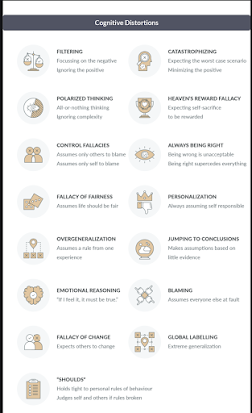Does creating art hinge on leisure time, or can the arts be produced by those not fortunate enough to have access to periods of 'peace and quiet'?
Under what conditions is art most often produced? What are the exceptions?
When is art more difficult to produce and, historically, have there been periods where large parts of society have not had access to the conditions to produce art?
If art requires the 'free time and relative peace' does it over-represent those privileged with those conditions and under-represent the more socio-economically or politically oppressed? If 'History is written by the victors' is (most) art created by the leisure class?
Consider all forms of art (music, folk art, visual art, literature, theater, dance, etc.). Are some forms of art more the realm of privilege than others?
We can likely find examples to support varying positions we might take on the topic - please do bring those particular examples from all corners of the arts, because generalizing will be less interesting.
----------------------
An overview from Sabine.
Thanks, Sabine, for these intro materials to get the creative juices flowing!
It may be helpful to read some excerpts from Virginia Woolf, who focused on this problem more in depth than I’m aware of in any other piece of writing or lecture in her (1928) A Room of One’s Own (link). Here are some key excepts:
Ch. 6, excerpt:
Ch. 3 excerpts:
“…returning again to my original enquiry into what state of mind is most propitious for creative work, because the mind of an artist, in order to achieve the prodigious effort of freeing whole and entire the work that is in him, must be incandescent, like Shakespeare's mind, I conjectured, looking at the book which lay open at Antony and Cleopatra. There must be no obstacle in it, no foreign matter unconsumed. For though we say that we know nothing about Shakespeare's state of mind, even as we say that, we are saying something about Shakespeare's state of mind. The reason perhaps why we know so little of Shakespeare--compared with Donne or Ben Jonson or Milton--is that his grudges and spites and antipathies are hidden from us. We are not held up by some "revelation" which reminds us of the writer. All desire to protest, to preach, to proclaim an injury, to pay off a score, to make the world the witness of some hardship or grievance was fired out of him and consumed. Therefore his poetry flows from him free and unimpeded. If ever a human being got his work expressed completely, it was Shakespeare. If ever a mind was incandescent, unimpeded, I thought, turning again to the bookcase, it was Shakespeare's mind.”
Here is a contemporary rebuttal-of-sorts to Woolf’s claim that writers need money and a room of their own, ie mental space: https://electricliterature.com/what-if-you-cant-afford-a-room-of-ones-own/
---------------------
FROM ANNETTE:
Hello! I'd like to use the example of Irina Ratushinskya as an example that leisure is not required. She was imprisoned for her works and wrote all throughout her time in prison. (Quite the opposite of luxury.) Here is a quick reference (from Wikipedia):
"On 17 September 1982 Ratushinskaya was arrested and accused of anti-Soviet agitation for writing and circulating her collections of verse.
Between 1 and 3 March 1983, she was tried in Kiev and convicted of "agitation carried on for the purpose of subverting or weakening the Soviet regime" (Article 62). Ratushinskaya received the maximum sentence of seven years in a strict-regime labor camp, followed by five years of internal exile. After being imprisoned three and a half years, including one year in solitary confinement in an unheated cell
while temperatures fell to minus 40C in the winter, she was released on 9 October 1986, on the eve of the summit in Reykjavík, Iceland between President Ronald Reagan andMikhail Gorbachev.
While imprisoned Ratushinskaya continued to write poetry. Her previous works usually centered on love, Christian theology, and artistic creation, not on politics or policies as her accusers stated. Her new works that were written in prison, which were written with a matchstick on soap until memorized and then washed away, number some 250. They expressed an appreciation for human rights; liberty, freedom, and the beauty of life. Her memoir, Grey is the Colour of Hope, chronicles her prison experience. Her later poems recount her struggles to endure the hardships and horrors of prison life. Ratushinskaya was a member of International PEN, who monitored her situation during her incarceration."









